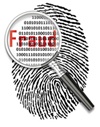 Lehigh Valley newspapers recently were once again filled with headlines about million-dollar fraud schemes.
Lehigh Valley newspapers recently were once again filled with headlines about million-dollar fraud schemes.
A bookkeeper was accused of stealing more than $1.4 million from an Emmaus civil engineering and landscape architectural firm and a former purchasing director at Utz Quality Food pleaded guilty to a $1.4 million fraud scheme involving vendor kickbacks.
Small business owners are left unprepared to identify or prevent fraud from impacting their businesses. In a typical small business environment, there are relatively few employees, minimal oversight and no money to invest in correcting either of these issues.
Any business owner working with this kind of environment needs to be aware of why fraud occurs and the risks that arise because of them. The following circumstances represent the fraud triangle model that explains the factors that cause someone to commit occupational fraud:
- They are under pressure from an internal and/or external source,
- They see a perceived opportunity in which they feel they wouldn’t be caught, or
- They rationalize why they deserve to swindle the company out of assets or funds.
Of these factors, opportunity is found most often in small businesses. The back office of a small business is typically made up of an employee or two. This creates the ideal situation for fraud to occur.
Employees are given unlimited access to all company files and they are keenly aware of what areas management supervises and which they do not. Add to this a lack of system security, management approval, and lack of segregation of duties and you are setting yourself up to be the next target.
Here are 10 steps companies can take:
- Create a culture of honesty and high ethics: Provide employee education and training on fraud. Emphasizing high ethics also will benefit your company in many ways beyond just fraud prevention. Provide a written policy that is reviewed with all employees that makes them aware of fraud and the consequences associated with them.
- Segregate duties: Companies should segregate duties, especially for a company’s cash-conversion cycle, including paying vendors, approving vendor invoices, and receipt of customer payments. These duties include separating the following business processes: custody of assets, record keeping, authorization, and reconciliation.
- Cross-training: Rotate jobs so employees are cross-trained and share duties. This will prevent one employee from having too much sole oversight over money matters.
- Ditch the rubber stamp: Using a rubber stamp to sign checks can open companies up to fraud. Rubber stamps are outdated and prevent an individual to see a difference in signatures. Companies are using pre-signed or digitally signed checks to replace the rubber stamp, but this isn’t any better. If this is happening, owners or qualified individuals must monitor checks by reviewing outstanding checks from monthly reconciliations and cleared check images online to identify suspicious transactions.
- Online bank and credit card statements: Turn off paper statements and sign up for online statements for you eligible accounts. Reconcile, review, and monitor account activity frequently to identify suspicious transactions.
- External review: All account reconciliations and general ledger balances should have an independent review by a person outside the responsibility area such as an outside accountant or another financially competent individual. This allows for reviews, better ensuring nothing is amiss and providing a deterrent for fraudulent activities.
- Secure your IT infrastructure system integrity: Equip your computers and other system components with the most up-to-date firewalls and antivirus software. This means protecting smartphones, tablets, and other mobile devices. Add to the protection level by executing daily backups of critical business data on every computer or server. If you use cloud storage, select a vendor with stringent security guidelines, and know your recourse if there appears to be a breach. Consideration of using and reviewing software audit trail functions can monitor transactions outside the normal course of business.
- Mandatory vacation: Fraud often can be detected when the employee who is committing the theft is not there for one to two weeks. Mandatory vacation is effective for employees that are part of the cash-conversion cycle.
- Fraud insurance: We strongly recommend purchasing fraud insurance. A company we worked with got wiped out of $300,000 in about 16 months and did not have insurance. Recovering fraud losses without insurance is very challenging because the fraudster probably doesn't have the ability to repay the company. After all, why would he or she have committed theft to begin with?
- Outside bookkeeping services: Another change small businesses can make is hiring outside bookkeeping services.
Emmaus-based Altitude Marketing has been using Concannon Miller’s bookkeeping services since January 2015. As Altitude Marketing sought to scale its business, company President Andrew Stanten says he realized he needed improved financial controls.
“After some analysis, we realized we were leaving money on the table through inconsistent billing practices and were not protected from accounts payable/receivable fraud through a lack of discipline with our monthly financial reporting,” he says. “All this lead to lower net income, making future hiring decisions based on inaccurate data and unnecessary cash flow problems.”
Stanten says he’s highly impressed with the service provided by Concannon Miller’s bookkeeping team and its smart separation of duties.
“Now, we have accurate, timely, consistent reporting. This gives us the ability to better forecast and plan in our growth,” he says.
Small businesses are at great risk of fraud and need to do more to ensure that their limited funds aren’t being swindled away without their knowledge. Staying connected with all parts of your business and having critical work areas performed by separate employees will help to keep your business fraud-free.
Concannon Miller consults with companies on deterring fraud as well as detection and investigation into suspected fraud. We can aid your company in preventing fraud through internal control reviews and fraud prevention practices. For more information, contact us here or 610-433-5501.




